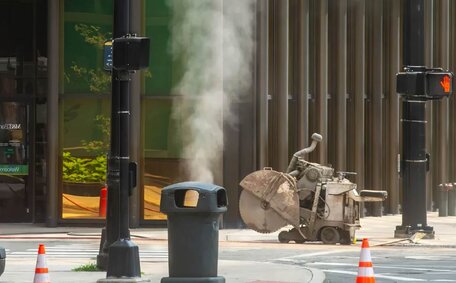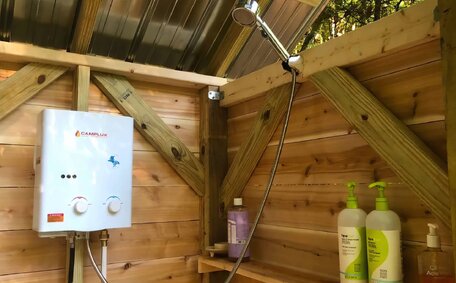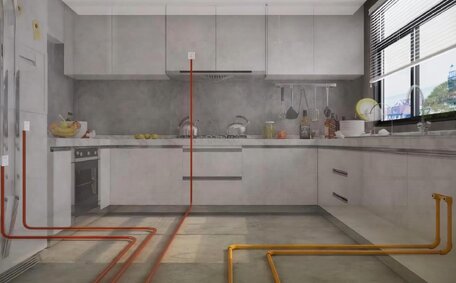
How To Move A Gas Meter
Need your gas meter relocated? You can’t move it yourself - contact your supplier to arrange for a gas engineer to reposition it safely. Charges may apply depending on circumstances.
Read MoreHot water systems are substantial contributors to household energy consumption, markedly increasing energy bills in Australia. Ensuring your system is well maintained and running efficiently is crucial to keep costs under control.
At Menai Plumbing, we strive to reduce the amount of energy used by hot water systems, offering the Menai community over 15 years of expertise. In this article, We’ll guide you through monitoring and recalibrating your hot water system to enhance efficiency and lower your energy costs.
We’ll cover:
Switching to a newer, more energy-efficient model can substantially boost your energy savings. We have the expertise to advise on new hot water systems and options that best suit your home and lifestyle.
Monitoring your household’s hot water usage can provide valuable insight into how efficiently your system is operating. Look out for the following signs that may indicate you need hot water heater recalibration:
Evaluate your gas and electric water heating systems against standard efficiency benchmarks. Gas supply for storage water heater systems should heat up water for around $25 to $45 per year, while electric water storage units use $150 to $300 of power annually. Continuous flow heat pumps, generally more energy-intensive, range from $100 to $250 in annual costs.
Check that your pilot flame operates effectively and set the correct water temperature to avoid energy loss and ensure safety. A recommended setting is 60°C, which is safer and more energy-efficient than the full bucket settings of 70°C for electric or 65°C for gas systems.
Track your usage for a week by timing showers, assessing hot water used for chores, and noting when the tank empties. This helps gauge if your daily demands are being met efficiently.
Monitoring your hot water system’s efficiency is crucial for cost-effective operation and keeping energy bills low. Hot water heaters can account for around 25 per cent of your energy usage in a household, more than any other single appliance.
Here’s how to easily assess and monitor the efficiency of your hot water system:
It’s easiest to monitor efficiency if you have established a usage baseline to compare against. We recommend measuring your system each season to detect changes.
Being attentive and addressing problems early keeps your house’s water heater finely tuned for efficiency. Contact your local licensed plumber at Menai Plumbing if you need help upgrading or servicing your system.
The thermostat controls the temperature of the water heated by your hot water system. Adjusting the thermostat with the control knob influences your system’s efficiency and running costs.
For most homes, an optimum electric hot water heater storage temperature is 60°C. This high temperature kills bacteria while still being energy efficient. However, avoid temperatures below 60°C to mitigate the risk of legionella bacteria growth.
Some households opt to turn down the thermostat, perhaps to 50-55°C to save more on your energy bills.
Here’s how to safely tweak your system’s thermostat for efficiency:
Contact Menai Plumbing for support with thermostat adjustment; we ensure a smooth process for optimal efficiency. We’re always here to make you feel secure by inspecting your system and providing tailored advice on optimising efficiency.
Insulating your hot water pipes is an effective way to improve efficiency. Up to 25% of heat can be lost from exposed pipes in the first 1-2 metres from your hot water unit. Properly installed insulation dramatically slows this heat loss.
Common types of pipe insulation include:
Before commencing installation, ensure your water heating system is off and pipes are completely cool.
Ensure that all joints and ends are thoroughly sealed, as per the detailed instructions provided.
While DIY insulation can be started in minutes, engaging a plumber can guarantee a quality job. If accessing pipes is difficult, a local licensed plumber professional from our team can complete fast and neat insulation.
Combining pipe insulation with other efficiency tweaks like a thermostat adjustment can ensure systems can operate at their best for optimising your hot water performance.
Installing heat traps and anti-convection valves are strategic measures to reduce heat waste in hot water systems.
Heat traps, essentially non-return valves, impede convection currents that cause heat loss. As water is heated, it rises to the top of the tank. The hot water then cools and falls, creating a continuous convection loop that steadily saps heat from your system.
Installing a heat trap valve, which a plumber can install on both the cold water inlet valve and hot water outlet, stops the convection cycle, locking in the heat. They can be easily retrofitted by a plumber to existing systems.
Anti-convection valves serve a similar function but use a different method. They are mounted on the hot water line and contain a neutral density fluid that expands when heated. This closes the valve opening to prevent cooler tank water from entering and driving convection currents.
When purchasing components like anti-convection valves, if you’re still experiencing no hot water, ensure you get the correctly sized model for your system.
Our team of qualified plumbers at Menai Plumbing can assess and get your system reviewed for the addition of heat management valves to enhance efficiency. We handle full installation so you can enjoy the benefits with no hassles.
Over time sediment can build up at the bottom of your tank, reducing the water volume more than full. Annual flushing clears sediment to maintain efficiency and extend the life of your storage water tank.
Gas hot water system units and storage water heaters are particularly prone to sediment accumulation in the storage tank. Annual draining and flushing of these systems are advisable to maintain optimal performance. Heat pumps and instantaneous systems rarely need this maintenance for the storage tank.
Flushing involves:
Do not do attempt to flush without the expertise of a local licensed plumber, as it can lead to damage to your system. For water call the experts; Menai Plumbing’s licenced technicians offer professional draining/flushing services to keep your hot water system efficient.
Upgrading to water efficient shower heads, taps, and plumbing fixtures is a practical strategy to reduce the amount of hot water used and boost system efficiency.
Low flow shower heads can restrict water volume without compromising water pressure, using aerated spray nozzles. Installing these along with tap aerators can decrease water consumption by up to 50%, lowering hot water demand.
For renovations or efficient water heating, opt for taps, toilets, and appliances with a high WELS rating. New washing machines, for example, use advanced technology to clean efficiently with minimal water.
Installing water efficient plumbing not only reduces the amount of water used but can also increase overall system efficiency, maximising long-term savings. Our team at Menai Plumbing stay up to date with the latest developments and can provide expert product recommendations plus full installation services.
Simple DIY upgrades like shower head swaps can make an immediate difference. We’re also happy to inspect your systems and advise on larger upgrades tailored to your needs, requirements, and budget.
Performing regular maintenance on your hot water system is essential to keep it operating at peak efficiency for years to come. We recommend homeowners implement the following routines that can help with monthly and yearly maintenance:
Menai Plumbing, with its team of licensed plumber professionals, offers maintenance service plans to keep your hot water system tuned for optimal efficiency. Our qualified technicians can also troubleshoot any issues discovered and advise on beneficial upgrades or repairs.
Don’t wait until you have no hot water call for assistance and it’s not available to take action. Regular maintenance saves money over the long run and prevents costly emergency callouts.
While some electric hot water system recalibration tasks are suitable as DIY projects, there are times when it’s wise to call in a professional plumber for assistance.
Upgrading to new hot and complex systems like solar or heat pump units is best handled by our qualified team at Menai Plumbing. We have extensive training and experience designing, installing and calibrating systems for optimal efficiency.
Trying to recalibrate gas systems without a licensed plumber can lead to safety hazards and legal penalties. Our licenced gas fitters can adjust thermostats, ensure your pilot flame is functional, and address common issues like insufficient hot water supply.
If after your DIY adjustments the pilot flame requires relighting, consult a professional for a comprehensive assessment. We can provide plumber professional advice to troubleshoot precisely what is impacting efficiency.
For reliable, reasonably priced plumbing services in the Menai region, contact Menai Plumbing on 1300 349 338 or [email protected]. Our fully qualified technicians are ready to help you recalibrate for better efficiency.
Need your gas meter relocated? You can’t move it yourself - contact your supplier to arrange for a gas engineer to reposition it safely. Charges may apply depending on circumstances.
Read MoreInvesting in a solar hot water system can save up to 75% on water heating costs. With great returns and added home value, solar hot water can be a smart choice over electric or gas heaters. Contact us to see if it’s the right investment for your home.
Read MoreWhile natural gas and propane can both power appliances in your home, they have notable differences when it comes to BTU output, infrastructure, safety, cost and more. Understanding these key contrasts will help you determine which is better for your specific needs.
Read MoreMenai, 2234 NSW
We will call back as soon as possible.




